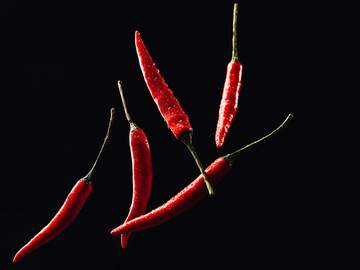
‘Piquant’
Piquant spiked in lookups last week, after Stephen Colbert used it in his television show to describe past comments he had made about Liz Cheney.
VIDEO - Liz Cheney Asks Colbert What ‘Piquant’ to His Piquant Jokes About Her Means, Says ‘It’s a Very Elitist Word’ https://t.co/4sp9Qazr2P
— Grabien (@GrabienMedia) December 12, 2023
Colbert, by his own account, intended to use the word with the meaning of “sharp” (a sense that we also define as “stinging, provocative, or cutting”). Piquant, which comes from the French piquer (“to prick, sting, nettle”), also carries the food-related meaning of “agreeably stimulating to the taste; spicy.”
‘Plagiarism’
Plagiarism spiked in lookups, as it often does when a notable person is accused of having engaged in this; Claudine Gay, president of Harvard, was said to have failed to properly cite sources in some of her published writing.
Harvard President Claudine Gay Faces Additional Plagiarism Allegations
— (headline) The Harvard Crimson, 14 Dec. 2023
To plagiarize something is “to steal and pass off (the ideas or words of another) as one's own : to use (another's production) without crediting the source,” and plagiarism is an act of this. Plagiarism comes from the Latin plagiarius, a word that literally means “kidnapper.”
‘Shell’
Shell had a busy week, after a Republican who has alleged that the Bidens benefitted from a shell company was said to have operated one himself.
The Republican leading the probe of Hunter Biden has his own shell company and complicated friends
— (headline) AP News, 14 Dec. 2023
This sense of the word shell is one that we define as “a company or corporation that exists without assets or independent operations as a legal entity through which another company or corporation can conduct various dealings.” There are many other meanings of shell; the oldest, in use since before the 12th century, is “a hard rigid usually largely calcareous covering or support of an animal.”
‘Immunity’
Immunity appeared in a large number of news stories last week, after Donald Trump indicated that he felt due a form of immunity from certain legal charges.
Trump immunity request puts Supreme Court in crosshairs
— (headline) The Hill, 14 Dec. 2023
We define this sense of immunity as “freedom or exemption from a charge, duty, obligation, office, tax, imposition, penalty, or service especially as granted by law to a person or class of persons.” The word is also commonly used in medical contexts with the meaning “bodily power to resist an infectious disease that usually results from vaccination or inoculation, a previous attack of the disease, or a natural resistance.” The ‘exempt from charge or obligation’ sense of the word is older than the ‘resisting a disease’ sense; this is unsurprising when we consider that immunity comes to English from the Latin immunis, meaning “exempt from public service.”
Words Worth Knowing: ‘Compotation’
The holiday season is upon us, bringing with it feelings of goodwill and cheer for some, existential angst for others, and a surfeit of holiday parties in general. In the spirit of the season we offer you compotation, defined as “a drinking or tippling together.”
Opperman said county road crews were keeping an extra-watchful eye on the radar Monday evening, knowing that New Year’s Eve would mean more motorists on the road during late-hours after an evening of compotation.
— Ryan Scott Ottney, The Portsmouth (Ohio) Daily Times, 1 Jan. 2013




